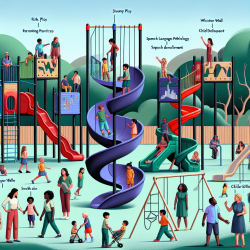Embracing Risky Play: A Data-Driven Approach to Child Development
In the world of child development, the concept of "risky play" is often met with apprehension. However, recent research suggests that embracing this form of play can lead to significant developmental benefits. The study titled Go Play Outside! Effects of a risk-reframing tool on mothers’ tolerance for, and parenting practices associated with, children’s risky play: study protocol for a randomized controlled trial offers valuable insights into how reframing parental perceptions of risk can enhance children's play experiences.
Understanding Risky Play
Risky play is characterized by activities that allow children to explore uncertainty and challenge their physical and emotional limits. These activities include climbing, exploring heights, and playing near potentially hazardous elements like water or fire. Such play is crucial for developing self-confidence, risk-management skills, and physical health.
The Study: Reframing Risk Perceptions
The study conducted by Brussoni et al. aimed to assess whether a digital tool and an in-person workshop could change mothers' tolerance for risky play. The research involved 501 mothers of children aged 6–12 years and employed a randomized controlled trial design. The intervention tools were designed to encourage self-reflection and experiential learning, with the goal of increasing mothers' comfort with allowing their children to engage in risky play.
Key Findings
- Increased Tolerance: The study found that both the digital tool and the in-person workshop significantly increased mothers' tolerance for risky play.
- Goal Attainment: Mothers who participated in the interventions were more likely to achieve behavior-change goals related to promoting risky play.
- Broader Implications: The findings suggest that changing parental perceptions of risk can lead to more opportunities for children to engage in beneficial risky play.
Implications for Practitioners
For practitioners in the field of speech-language pathology and child development, these findings underscore the importance of incorporating risky play into therapeutic practices. Encouraging parents to embrace risky play can lead to improved outcomes in children's physical, emotional, and social development.
Encouraging Further Research
While the study provides a strong foundation, further research is needed to explore the long-term effects of risky play on child development. Practitioners are encouraged to consider how they can integrate these findings into their practice and contribute to ongoing research efforts.
To read the original research paper, please follow this link: Go Play Outside! Effects of a risk-reframing tool on mothers’ tolerance for, and parenting practices associated with, children’s risky play: study protocol for a randomized controlled trial.










